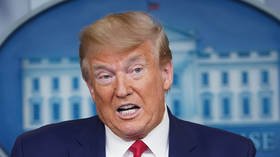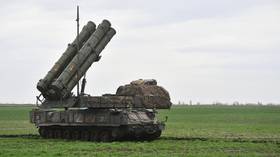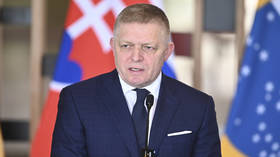Nobody knows anything: West doesn't trust China's Covid-19 figures, but are its own numbers any more meaningful?
Whatever the eventual impact of the coronavirus, one thing has become apparent: when governments are the gatekeepers of data-gathering, there is no reliable source of information on the scale of the pandemic.
It did not take long for a war of information to break out over the true extent of Covid-19. Every morning, we wake up to the freshest figures for our own country. Another few hundred or thousand new cases, depending on where you live, and a fraction as many deaths. Every day, the colour-coded curves corresponding to the cases in various countries creep one day further into the future, like breakers approaching a beach.
But there is no way of comparing different countries’ statistics, based as they are on processes so riddled with holes and flaws that they may as well be guesswork. Obviously, comparing Italy and Belarus is comparing apples with oranges – the populations and the timelines of the pandemics in these countries are wildly different, so inferring results from their response plans is pointless.
Also on rt.com Our lockdown was supposed to protect the most vulnerable, the elderly, from Covid-19 – but we’re achieving precisely the oppositeIn the same way, though, comparing Italy to a more superficially similar country, like Spain, is just as meaningless. Because their testing systems and data reporting vary, there is no way to glean any useful information, for example, about whether their lockdown measures have helped. The Mail on Sunday columnist Peter Hitchens has been terrier-like in his assertion that there is no known causal relationship between lockdown measures and fewer deaths, which has not made him any friends in the mainstream media.
Furthermore, there are too many unknowns about the virus itself and, as a brand new strain previously unknown to humans, attempts to understand it have come from a standing start. Every new piece of research seems to raise more questions than it answers. Are most people asymptomatic carriers? How long are people contagious for? Are there many strains or just one? And how deadly is it in comparison to the flu? It is likely to be a year or more before we know – such is the nature of scientific research. Until then, we will have to embrace our ignorance.
Not the only one
From the beginning, seemingly obvious inconsistencies and impossibilities came through the mainstream media. The most basic figures on case and death numbers did not stand up to the simplest back-of-the-envelope calculations. How could the mortality rate in Italy be 20 times what it was across the border in Germany?
Many people questioned the figures coming out of China, and they were right to do so. It is impossible to trust the Chinese government on matters of fact at the best of times, and when they felt backed into a corner – as they did when one of their major cities spawned this virus – they had every motivation to downplay the scale of the crisis. There is a danger, though, that in scapegoating China as the world’s only haven of lies and propaganda, people will automatically take at face value information from governments they trust more, such as their own. This would be a mistake, no matter what country one is in.
Testing times
Consider one element which is key to the statistic-gathering process: testing. In the simplest terms, a population contains people who have not yet been exposed to the virus, people who currently have the virus, and people who have had the virus but who are now recovered. On any given day, some of the people who have not yet been exposed to the virus contract it, and some will have symptoms of Covid-19 (with a broad range of severity, as we know).
What we would like to know is how many of those people there were today, ie. the number of new cases. Switch on the television and the news will be confidently reporting today’s figure. But in fact, this information is utterly unknowable. There is no mechanism by which all of these people could or would report for testing once they feel sick, because there is a global shortage of testing kits. And even if the right people were tested, there is currently no way of knowing how accurate the tests are – to find out the proportion of false negatives, you would need a test to test the tests.
Also on rt.com WHO can we trust? Just when coronavirus gave the World Health Organization its moment to shine, it bottled itMoreover, the tests, once done, have to be processed in some way to get the results. This is taking days or weeks for ordinary, non-celebrity people, but there is a suggestion that after a few days the positive tests actually turn negative, that the virus dies on the swab and does not show up in results. All of these possible points of failure are only to do with the testing. And it is on this basic premise that all other official and governmental statistics are based. Therefore, not trusting facts and figures is not a question of paranoia; it is a question of realism.
Known unknowns
William Goldman, the legendary screenwriter of ‘Butch Cassidy and the Sundance Kid’ and ‘The Princess Bride’, had a personal motto for understanding Hollywood. It was: “Nobody knows anything.” He did not live to see the present crisis, but his words of wisdom apply to the coronavirus too. Nobody knows anything, least of all the experts and politicians who are paid to regularly pontificate on the subject.
We have all been guilty of trying to pretend we know more than we really do. It is the natural human response in a crisis to try to understand. Our greatest adaptation, the thing that separates us from the animals and makes us who we are as a species, is our intellect. With our minds we have conquered the world, dominated every other animal, and subjugated the rivers, mountains and oceans to our will. How ironic then, that one of nature’s smallest organisms, invisible to us, has sent us into a tailspin. We are still subject to the whims of nature, and we would do well to remember that.
Like this story? Share it with a friend!
The statements, views and opinions expressed in this column are solely those of the author and do not necessarily represent those of RT.














